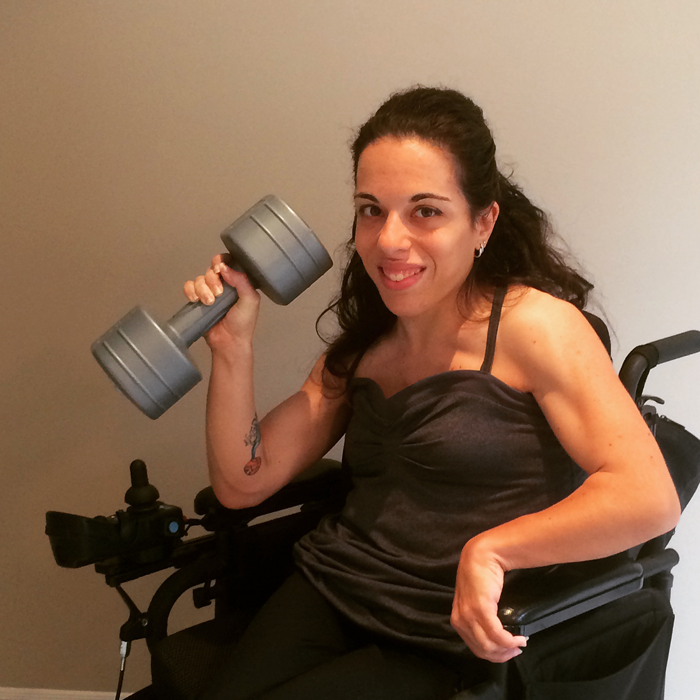Like muscles, self advocacy is a skill that needs to be flexed in order to grow stronger
CP-NET Community Profile: Jess Silver
To be a self advocate is to champion your own rights, to effectively communicate your needs and to make informed decisions about factors that may affect your health or life outcomes. The concept is frequently applied in relation to young people with disabilities, who often need to work harder than their peers without disabilities to ensure their needs are met in school, the workplace and daily life.

Growing up, Jess Silver never really thought of herself as different. “I just needed to do things differently,” explains the Toronto resident, who experiences physical challenges associated with cerebral palsy and scoliosis that affect her ability to walk independently. “Most of my friends were able-bodied, and I never really thought of myself as an advocate for myself or for others.” However, as she transitioned into adulthood and came up against more physical, social and systematic barriers, she found her personal relationship with self advocacy evolving. “(Now) I define it as learning everything I can about my condition,” she says. “I define it as understanding my own beliefs and purposes, and embracing the fact that, yes, I do have a physical challenge, but I would never let that limit me.”
Looking at all that Silver has accomplished in her 26 years, it is readily apparent that she lives by these words. After graduating from York University with a degree in English and completing graduate work in creative and medical writing at Humber College and the University of Chicago, Silver launched a dynamic career in medical and creative communications. Silver is also an avid sports enthusiast who can regularly be found training at the gym.
Her passions for fitness, communications and self advocacy have recently converged with the launch of a social media awareness and fundraising campaign called Flex for Access. "The notion for Flex for Access was born out of the personal adversity I continually face in having others understand my limitations with (CP) and the importance of accessibility in all facets of life. I also wanted to emphasize the role of fitness to managing (CP) and any other limitations or injuries,” she explains.
There is always going to be someone telling you that you can’t do something. You need to be unafraid to challenge stigma. You can’t change your condition, but you can change how you look at it and you can help develop tools that will support your success.
Participants in the campaign post ‘selfies’ of themselves flexing their muscles on Twitter and Instagram, tagged with the hashtag #FlexforAccess. Pictures can also be of equipment or representative of accessibility or advocacy efforts in our society. “Anyone can participate,” she explains. “I wanted to find an engaging avenue that will allow everyone regardless of physical fitness and capability to see that anyone can participate in fitness and sports.”
Donations to the campaign support the purchase of adaptive exercise equipment in rehabilitation centres and facilities that would not normally be able to support individuals with physical disabilities, like conventional gyms and yoga studios.
While physical activity is particularly important for people with cerebral palsy, for whom an inactive lifestyle may lead to declines in function and quality of life, Silver is quick to emphasize that accessibility to fitness should be a universal concern. “I was born with Cerebral Palsy and the condition varies in each case. Injuries and physical challenges can occur at any point in anyone's life and it's important to understand that a societal understanding of this notion of arbitrary circumstance and a need for accessibility of infrastructure and organization structure is not relevant to a specific demographic only, but to everyone, regardless of ability.”
For young people who are still negotiating their relationship with self advocacy, Silver shares the following advice: “There is always going to be someone telling you that you can’t do something. You need to be unafraid to challenge stigma. You can’t change your condition, but you can change how you look at it and you can help develop tools that will support your success.” She also highlights the importance of family and friends. “The other side of the equation is having people who support your efforts, which I’ve been lucky enough to have. Key into that support.”
Jess Silver tweets at @FlexforAccess and @JessS31695207.
Donations to Flex for Access can be made by visiting the “Donate” page on www.stopgap.ca Please specify that the donation is in support of the #FlexforAccess campaign.
